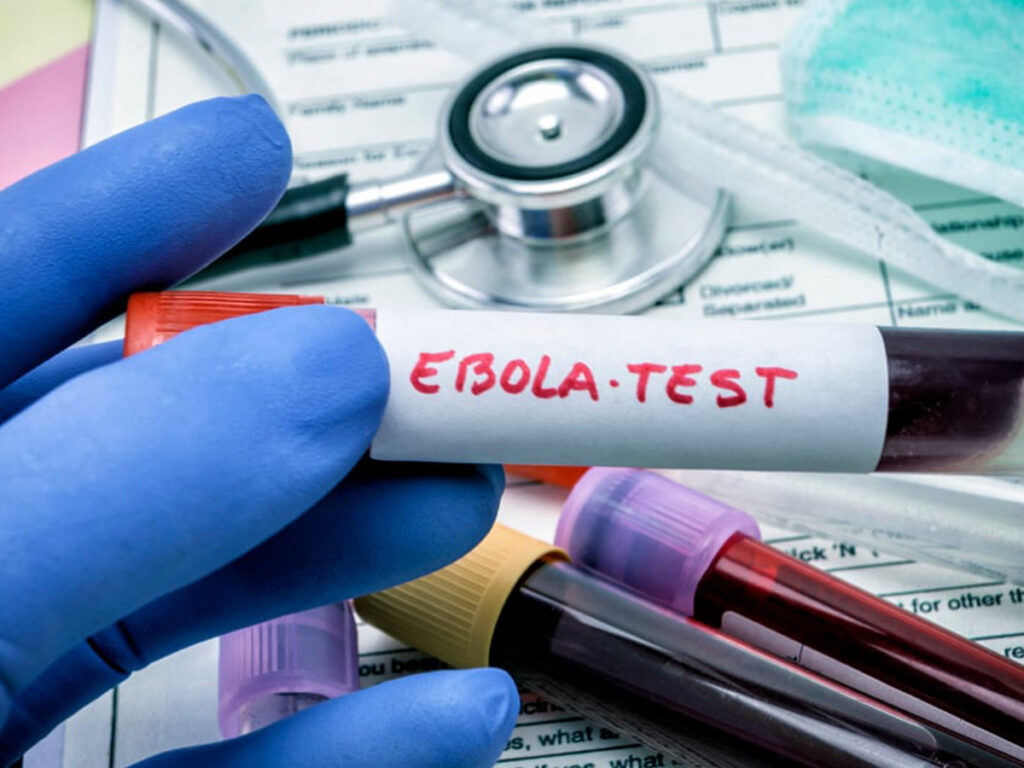Health authorities in the Democratic Republic of Congo have declared a fresh outbreak of the Ebola virus disease in Kasai Province, where at least 28 suspected cases and 16 deaths, including four health workers, have been recorded.
The country’s Ministry of Health confirmed that samples tested at the National Institute of Biomedical Research in Kinshasa identified the Ebola Zaire strain as the cause of the outbreak.
The index case was reported to be a 34-year-old pregnant woman admitted on 20 August with fever, diarrhoea, and vomiting.
This marks the DRC’s 16th Ebola outbreak since the disease was first identified in 1976. The last outbreak occurred in Equateur Province in April 2022 and was contained within three months.
In response, the World Health Organisation has deployed a national rapid response team alongside Congolese health officials to strengthen surveillance, contact tracing, treatment, and community awareness. Two tonnes of supplies, including personal protective equipment, medical kits, and a mobile laboratory, are also being dispatched.
WHO further announced that 2,000 doses of the Ebola vaccine, pre-positioned in Kinshasa, will be moved to Kasai to vaccinate frontline health workers and contacts.
Nigeria, sharing close regional ties and travel links with Congo, has heightened surveillance at all points of entry. The Director of Port Health Services at the Federal Ministry of Health and Social Welfare, Dr Akpan Nse, told Saturday Punch that all inbound passengers from Congo are now subject to strict screening.
“We have intensified surveillance at airports, land borders, and seaports. Every inbound traveller from Congo is thoroughly screened, and medical history forms are completed. Even passengers transiting through Congo must undergo checks,” he said.
Dr Nse added that more staff had been recruited with support from the WHO to strengthen border control. Private partners are also working with the government to keep thermal scanners at airports fully functional.
The WHO Director-General, Dr Tedros Adhanom Ghebreyesus, confirmed the release of $500,000 from the organisation’s Contingency Fund for Emergencies to support the response.
“We’re joining rapid response teams to trace contacts, collect samples, and provide technical expertise in infection prevention and treatment,” he said.
Experts in Nigeria have urged vigilance, warning against complacency. Associate Professor of Infectious Diseases, Adeleke University, Osun State, Dr Oladipo Kolawole, said coordination among ministries and agencies was crucial.
“Everybody coming into the country, especially from DR Congo, must declare where they are coming from, and we must keep surveillance well-tightened,” Kolawole noted.
Similarly, virologist Dr Moses Adewumi of the University College Hospital, Ibadan, stressed that early detection was key, adding, “We can’t stop people from travelling, but we need to ensure that surveillance is tightened at all points of entry.”
At the Lagos University Teaching Hospital, Dr Iorhen Akase highlighted the importance of community vigilance, stressing that Ebola is only transmissible when symptomatic, advising, “If you have somebody in your community who is ill, let them go to the hospital immediately.”
Since its discovery, Ebola has caused 15 previous outbreaks in the DRC, including in Kasai in 2007 and 2008. The virus is transmitted through direct contact with blood, secretions, or bodily fluids of infected individuals and animals such as fruit bats, believed to be the natural hosts.




